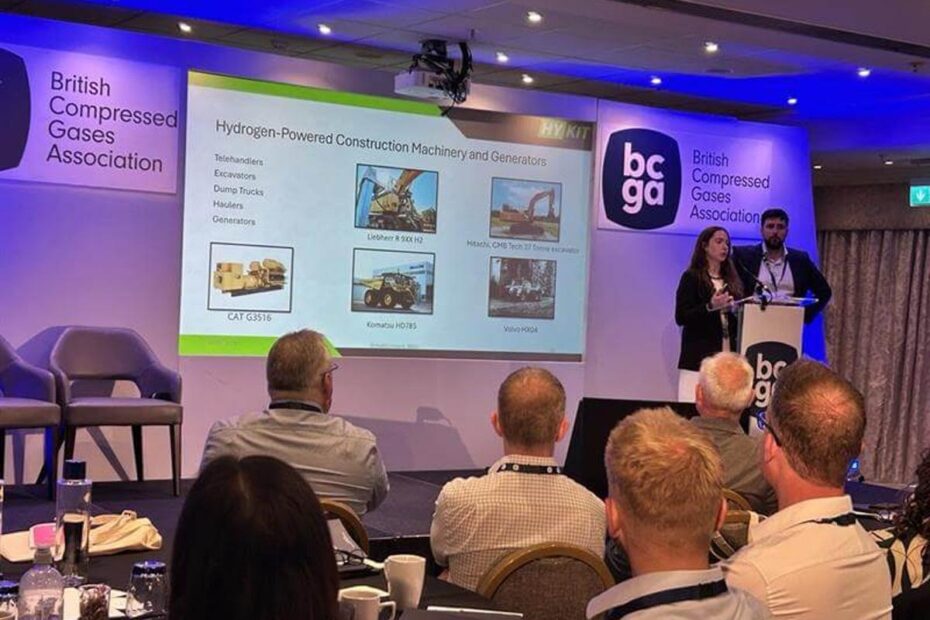The opening morning of the British Compressed Gases Association annual conference shone the spotlight on construction, which is a sector that remains central to decarbonisation.
On stage at the Worsley Park Hotel in Manchester were John Vickers, Engineering Director, and Caitlin Sergeant, Senior Project Engineer, at HyKit, which is a hydrogen infrastructure joint venture comprising JCB, HYCAP and HydraB Group.
Vickers said the hydrogen industry was busy looking at “creative ways” to try to bring costs down and offer pragmatic options to builders.
“Part of this is developing much smaller pieces of [hydrogen-powered] equipment,” he said. “A lot of site operators are not operating at any sort of scale that can justify deployment of large-scale assets. Space is incredibly tight on some of these sites – and then there are concerns over availability of supply.”
A slide illustrated a tripartite solution, in the form of mobile refuellers, modular storage systems, and mobile compressor units.
“You can drive the refueller onto the site, drive it directly to the machine, refuel it, and drive it off site – you’re not worried about security [or] lighting. It’s difficult to justify having a 20- or 40-foot tube trailer on site to power a small 55kW engine, so we’re trying to bring forward these module storage solutions, where we’re storing [hydrogen] at a higher pressure but with a much smaller footprint.”
He said an added bonus was how it boosted familiarity with hydrogen and helped to build relationships with suppliers.
Like many speakers, he said clear policy guidelines were a must.
“We need everybody here to be pushing for clear policy, for confident operation, to develop the skilled workforce and that will allow us to enable hydrogen at scale.”
One positive UK government measure, he added, was a change in legislation that allows hydrogen mobile machinery onto roads, providing parity with conventional diesel engines.
But he conceded that one of the biggest challenges remained the availability of hydrogen and its cost. “We need to bring those costs down – we saw that on many construction projects. Hydrogen can be more affordable through green energy, not just subsidy.
“JCB is not investing in hydrogen because it believes it’s a way to get government money – it is putting its own money behind this because … [it is] a profitable route forward.”
He concluded that, from a BCGA viewpoint, alignment of standards was vitally important. But he said the industry shouldn’t become too bogged down in red tape.
“We do need to take a pragmatic approach because otherwise we’ll end up smothering hydrogen by covering it with too many safety blankets so it becomes impossible to operate.”


